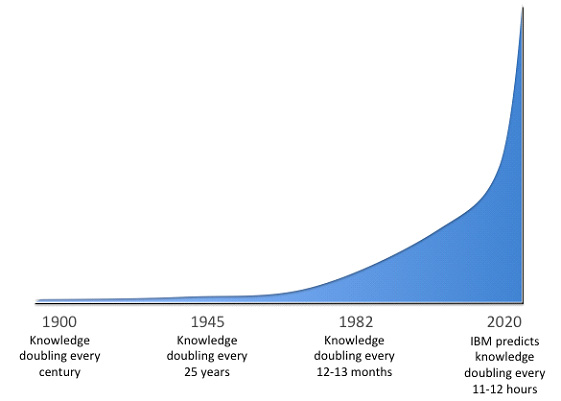WHAT JUST HAPPENED?
Since mid-March, every conversation touches on the pandemic, at least for a second. But the topic’s been consistently held as a temporary situation.
Then last week happened. Plans for return to work in July shifted to year-end 2020. Conferences in 1Q21 started getting the “let’s go virtual!” treatment.
Three months is temporary. A full year is, “We gotta figure this out, for real.” Any wonder why the term OVERWHELM has been creeping back into all my client conversations?
We’ve done a lot of breathing together!
Why the constant focus on Mindfulness, Jim? I get it, can we move on?
Uhm, well… no. Not yet, at any rate. Can we pause, sit back, and take two breaths, first?<…wait for it…>
There. That’s 10 seconds. Two rings of your phone.
Here’s something: during those 10 seconds users UPLOADED 100 hours of video to YouTube and collectively VIEWED over 500,000 hours of video. The US economy spent 15 BILLION dollars. 2,000+ new products were listed for sale on internet marketplaces. 8,500 new articles were published (not including 6,481 new blog posts), 5,787 new website pages were elevated, and approximately 4 new book titles were published.
While you were taking two breaths.
I was curious, so I dug up a decade-old presentation I called “the speed of life” (this is before the Happiness part got added!)
At that time the doubling of knowledge went like this:
- First doubling: AD year 1 to 1500 (1.5 millennia)
- Second: 1800 (300 years)
- Third: 1900 (100 years)
- Fourth: 1950 (50 years)
- Fifth: 1980 (25-30 years)
- Sixth 1992 (12.5-15 years)
- Seventh 2000 (6-8 years)
- 2004 (3-4 years)
- 2006 (1.5-2 years)
- 2010 (annually)
I also stumbled across this article by Marc Rosenberg, a thought leader in the digital learning space, where he discussed IBM’s predictions based on what we already knew in 1982:

If knowledge were increasing at the same rate over time, handling it all would still be challenging, but the exponential growth of knowledge makes it all much, much harder. Plus, the definition of “knowledge” has expanded to include everything we used to call just “data” because even if a discrete fact does not constitute knowledge, all that data has meaning when it is studied.
Calculating the half-life of knowledge from that graphic, this is how the past decade’s unfolded:
- 2011 (6 mos)
- 2012 (3 mos)
- 2013 every 6-8 weeks
- 2014 every month
- 2015 every 2 weeks
- 2016 every 7 days
- 2017 every 3.5 days
- 2018 every other day
- 2019 every day
- 2020 every 11-12 hours. This is where we are now!
This explains a lot about WHY my clients – and you — feel overwhelmed, anxious, and stressed! The pandemic, economic upheaval, climate change, and issues of social injustice are by themselves enough, but on top of that we are assaulted every moment by data, data, data about all of them and more!
This is Why Mindfulness!
Your brain strains to operate at a pace that exceeds its evolutionary capacity. It’s more important than ever that you learn how to REST your brain and give it space to recover, and that’s what mindfulness does.
AND it can be as simple as doing something you’re already good at – breathing.
Just pause and breathe on purpose before reading this last bit of reality…
The half-life of knowledge
(The following is excerpted from the article I cited above and here)
“The accelerating growth of knowledge is not all we have to contend with. Compounding the challenge is how long that knowledge remains accurate and useful. Alvin Toffler, futurist and author of the famous book Future Shock (1970), suggested that
‘the illiterate of the 21st century will not be those who cannot read and write, but those who cannot learn, unlearn, and relearn.’
We all know that much of what we learned in school, on our first job, or even on our last job is of far less value now than when we first learned it, and that we must always be vigilant to recognize what knowledge is still valuable and what needs updating.
So, an even bigger issue is how long it takes for knowledge to become outdated, incorrect, or irrelevant. One measure of this is the half-life of knowledge, the amount of time it takes for knowledge to lose half its value. For many content domains, especially in science, technology, R&D, marketing, and even finance, the half-life of knowledge is shrinking. Information that 10 years ago was useful for 12 months might only be valuable for 3-6 months today.
The clash of knowledge doubling and knowledge half-life
The message is clear: When knowledge is doubling exponentially, yet the useful lifespan of that knowledge is decreasing significantly, the result is a knowledge tsunami—a seemingly unstoppable wave of new information pushing you forward, combined with an extremely forceful undertow of information that used to be valuable but is now just knowledge clutter, pulling you back.”
You have a choice: embrace letting go and unlearning as life skills, or cling to a tree that’s getting pounded by a tsunami. How you choose will greatly affect your future happiness.
Remember: Leadership is not about a title. Anyone can be a leader who can hold an occasional space for self and others to slow down and recover – because today is the slowest day you’ll have for the rest of your life!
~*~*~*~*~*~*~*~*~*~*~*~*~*~
It’s All About You, First
Happiness Principle #1 says, Become Positively Self-ish. In other words, take your own oxygen first. Here are some tips from the HBR blog for Leaders who want to be more effective (and less overwhelmed) in these times:
Start with self-care. Ask for help when you need it. Hold the space for others to feel heard. Notice and speak aloud the positive, no matter how small or how often.
Full article: https://hbr.org/2020/04/to-take-care-of-others-start-by-taking-care-of-yourself
~*~*~*~*~*~*~*~*~*~*~*~*~*~*
Seeking support for your Happiness in COVID times? Post this summary of The 13 Principles of Happiness and on your refrigerator or WFH desk to remind you that every day, you can CHOOSE how you view the world.
~*~*~*~*~*~*~*~*~*~*~*~*~*~*

